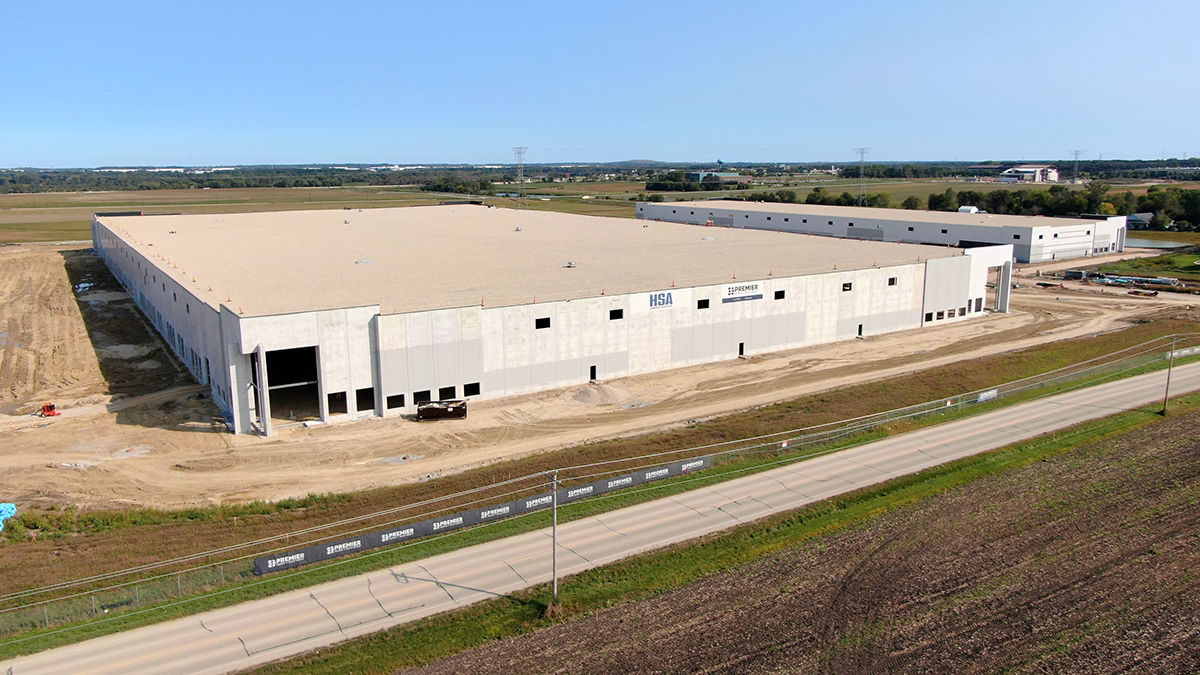The past year could be described as one of unforeseen challenges, change and resourcefulness.
Kenosha County’s residents and business community faced a pandemic, project and economic slowdowns and civil unrest and yet still there were examples of positive and significant developments.
It didn’t always look that way.
David Clark, an economics professor at Marquette University who also closely follows the real estate industry, said 2020 was like a roller coaster starting out strong, dipping and then rebounding again later in the year.
The coronavirus pandemic affected businesses differently. Small, family-run businesses may have been hit harder than others. Some business owners estimate they may have lost 60% to 80% of their revenue.
It was difficult, but as spring 2021 approaches many believe the storm has been weathered. While there still is some fallout from the pandemic, observers see a light at the end of the tunnel as more people are vaccinated.
The pandemic “affected everybody in a negative way,” said Lou Molitor, president and chief executive officer of the Kenosha Area Chamber of Commerce. “Confidence is starting to come back. More businesses are coming.”
“I think we came out stronger. I think we’re a better Chamber,” he said. Indeed new businesses are coming.
“From COVID, we had only a 3% business closure rate in the district primarily because so many development projects were slated for 2020 prior to the pandemic,” said Alexandria Binanti, executive director of Downtown Kenosha Inc.
Layoffs in the 2020 pandemic induced some people to become their own bosses. “With as many layoffs that occurred, entrepreneurship became appealing to some, and our city has great affordability for new business owners,” Binanti said.
“We did note capital improvement projects decreased by about 16%. We had initially predicted a much larger decrease in improvements but saw this as a positive indicator that business and building owners wanted to optimize this time to make improvements for future growth,” she said.
Last year, some 20 new businesses opened downtown. They include the Apis Hotel and Restaurant, Bellissima’s Boutique, Berkshire Hathaway Epic Real Estate, Better Bookkeeping Services, Blue House Books, Cannavita, Down the Rabbit Hole, and The Downtown’R Saloon.
Others include EM’s Dance Studio, FitFam Kenosha, Gordon’s Sport Bar, Kenosha Beauty Supply, Ono Sushi, Shoe Soldier, Stay Relax Inc., Tavern on Sixth, Upper East Banquets,and The Vault Banquet Hall.
A major downtown addition included the relocation of Herzing University into the former Kenosha News building.
Rebuilding of Uptown
Civil unrest in late summer 2020 left parts of the community with damage and, in the case of several blocks of the Uptown neighborhood, significant devastation.
2021 is expected to be a year of rebuilding in Uptown.
Plans call for the reconstruction of businesses in the heart of the Uptown community along 22nd and 23rd avenues. Gorman & Co., the developer that converted the former Downtown Elks building into the Stella Hotel & Ballroom, announced plans to construct a mixed-use retail and residential complex on 22nd Avenue and another along 23rd Avenue.
The $18 million project features 104 apartments and 24,900 square feet of commercial space. Gorman is collaborating with the Kenosha Area Business Alliance using funding through grants.
The city recently purchased Uptown’s former Brown National Bank building complex for $450,000 to develop into a community center for non-profit organizations.
Regional growth continues
On a larger scale, industrial and commercial growth continued, said James Paetsch, a vice president with Milwaukee 7, an economic development organization that promotes business growth in the seven-county southeast Wisconsin region including Kenosha County.
Momentum that began in 2010 has remained strong.
During that span, 10,000 jobs were created along with billions of dollars of investment in the region. “What we’ve seen is remarkable growth,” Paetsch said.
The pandemic has slowed, but not halted area developments.
“COVID just pushed the pause button,” Paetsch said. “Global supply chains were interrupted. Shipping became backed up. Companies needed some time to assess what they needed to do. Those that made the assessment did fine.”
Meanwhile, capital projects that began before 2020 continued. These include Haribo, the German candy maker that is locating its U.S. operations in Pleasant Prairie.
“We did not see any stoppage of deals that were already started,” said Paetsch.
He believes the impact of COVID will not last as long as the deep recession of 2008 that stymied the local economy.
KABA helps bring in new businesses
The Kenosha Area Business Alliance continues to have success guiding businesses from Illinois and other areas to relocate in the community.
KABA Vice President Heather Wessling Grosz is quick to note that across-the board partnerships have helped to make the difference. KABA works closely with Milwaukee 7, the Wisconsin Economic Development Corporation and many other groups and agencies.Grosz said the current goal is to keep Kenosha County healthy and continue to respond to the setbacks of 2020. The plan is to rebound, rebuild and continue the path for strong growth into 2021.
She points to the redevelopment of the west side of 22nd Avenue. “Bringing back displaced tenants, including a grocery store into the Uptown district as vital as well as securing investment in many of the unfilled lots that have been cleared,” she said.
Significant developments include the relocation of Nosco, a Gurnee, Ill., packaging manufacturer serving 400 customers, as well as Trifinity, a Waukegan, Ill., specialized distribution company also locating to Kenosha.
Others include Geneva Supply; Old Dominion Freight Line, a North Carolina-based company; RealChem Manufacturing, a Mundelein, Ill., company; and the Salem Business Park with Vonco and AdventTool.
Stabio North America and R+D Automation (currently under construction) will be in Salem.
Read more at the Kenosha News.

